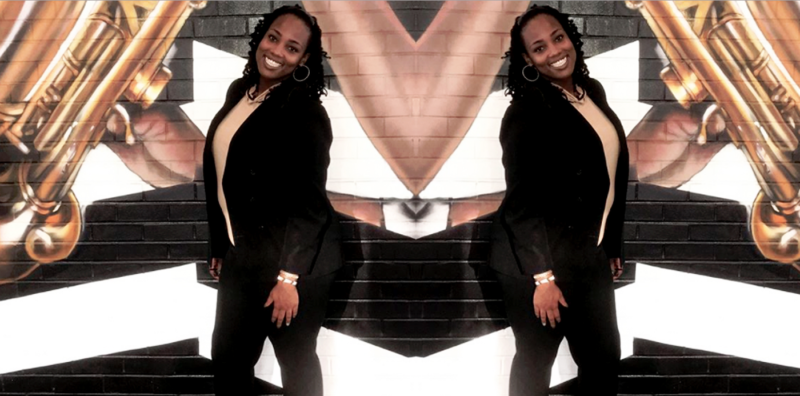Ci Ci and I both attended The University of Georgia,in the United States. I met her at an undergraduate sociology class. Back then, I noticed that she always had an aura of quiet resilience about her. She may not have spoken much, but when she did, she spoke assertively-yet-calmly.
I recently reconnected with her randomly thanks to Uncle Mark (Zuckerberg)with Intagram’s friend suggestions feature. I remembered her from college and so I followed her and of course, proceeded to look at all her Instagram posts.
It was while reviewing her posts that I discovered that she was HIV Positive. I was quite moved by the fact that she was sharing her story with the world with no inhibitions. I was pleased to see that her assertive and resilient spirit remained unbroken, despite her predicament. And so I reached out to her to ask if she would share her story with us, and she graciously obliged.
I hope that by sharing her story, we can raise more awareness about HIV and help to mitigate the stigma against people living with the virus. I also hope that African millennial women can become more enlightened by hearing this firsthand from a fellow millennial woman of colour.
Tell us about yourself
My name is Ciarra. ButCi Ci is who I am. I am 30 years old, and I’m from Philadelphia, Pennsylvania. I have been HIV-positive since I was 20 years old.
What were your childhood, teenage years, and 20s like?
My childhood was very sad and chaotic. My parents were not in a good place when I was born and this cultivated an extremely dysfunctional environment. My teenage years were depressing. I didn’t want to be here anymore. This is when my suicide attempts happened because I was just that sad. In my 20s I learned a lot about myself and my expectations of others. My faith in God grew and I began to trust Him. Life has been so much better since.
Growing up, what were your aspirations in life?
Growing up, I wanted to be a dancer. I grew up during the time of music videos. I would study all of the dances they did in the videos until I knew them by heart. I wanted to get married to my prince in shining armor and have children. I wanted to live a normal life.
Have those aspirations changed now in your adult life? If yes, in what ways?
Yes a little. Well the dancer thing went out the window. For one, I can’t dance. So now, I just dance in the house for fun. I get the same kick out of it. About the marriage thing. I’ve been married before, in my early 20s and that didn’t work out. BUT I had the child that I wanted, so it’s a win. Being married and divorced so young matured me very quickly. I see marriage differently now and I am certainly taking my time with the next one. And normal? I realized that there is no such thing. So now, I just merely aspire to be the best CiCi.
What prompted you to get tested for HIV?
I was going to the clinic for a regular check up so that I could get birth control. That was always my concern – not getting pregnant. It was never not catching HIV because it wasn’t real to me at the time. They offered the HIV test and I was like, “Sure!” This one always comes back negative. So why not?
How did you contract HIV?
From a guy that I was sleeping with while in college. I had a time where I had multiple partners, so it’s always hard to just pin it on one person. I have a pretty good idea though.
What was your initial reaction when you first found out you had the virus?
I cried.
How did you cope with the news?
Actually, me and my mom cried for three days. On the fourth day, it was like why am I crying? Obviously I had this virus a few weeks ago and I was able to smile then. So what makes it different now? Because I know? I turned my perception around and began to educate myself about it so that I could learn how to manage it moving forward. I’ve been living since.
What was your family and loved ones’ reactions?
The men in my family were ready to go find the dude who gave it to me. That would have never ended well. So I never told them who. My grandmother was in denial at first. She wanted me to keep getting tested. The relationship between my father and I was a little estranged at that time. And I hear he didn’t take the news well. But there was always support and never a moment that they didn’t love on me. We often forget that I’m living with it.
Before your diagnosis, what was your perception of people who had HIV? In what ways has that perception changed now?
My perception of someone living with HIV was that they would look a certain type way. I know it sounds crazy, but I literally thought that I would be able to tell when a penis didn’t look right. People with HIV would somehow stick out. Think of the most ignorant thought in the regard to the virus and I probably had it. O, am I humbled now! It’s crazy because now since I’m actually living with it and experiencing it, I know I have the responsibility to adjust those perceptions people have. If I thought that way, someone else probably does too.
What are some major obstacles you have faced as an individual living with HIV? How are you overcoming these challenges?
HIV is more of a psychological thing for me. On some days, I find that I’m beating myself up for something that happened over ten years ago. So I have to check myself often to make sure my thoughts are not wandering off into negative self talk. I oversaturate my mind with positive thoughts and love.
From your perspective, what are some major misconceptions about HIV?
I think that people feel that they are invincible. Like HIV can’t touch them. When I hear this, I often like to point out that HIV can be transmitted the same way that others STDs are – and many of us have had an experience (or two) with those. Another major misconception is that if you sleep with someone who has the virus then you are going to get it. That’s not necessarily true. I mean, you have to be more careful, such as getting tested regularly and ensure the person with it is properly taking their medicine. I have been undetectable for years, making it like nearly impossible for me to pass it.
You have a son that is HIV negative. Tell us more about that
Yes. My Zionis the product of my early marriage. I love him so much! I worked closely with the doctors while I was pregnant to ensure that I would be undetectable at the onset of labor. They were wonderful. His father is negative, so I was the only threat to him. But, my medicine regimen worked and I was able to give birth to him through my vagina. He did not contract the virus from me and that makes me so happy. He proved to me that I can’t be dangerous to nobody else.
You are currently in a loving relationship. Tell us more about that
I just love him. He is so, so supportive of me in everything that I do. We are like this team and it’s feels good to experience that. He has never treated me any type of way because of the virus. He’s HIV negative and has taken the time to become educated about the virus. Again, I love that man!
What’s your advice for millennial women of African descent who are currently living with the virus?
Do not give up. Follow some people on social media who are living with the virus so that you may be inspired. Life goes on and this is not a death sentence. Yes, it may change how you move but that doesn’t mean you stop. You are not alone sis, there are soooo many of us out here.
If you could turn back time, what would you do differently?
I would have loved myself earlier. It was because of this lack of self love that I was just out there doing stuff. Dumb stuff.
What advice would you give young women today about protecting themselves from the virus?
Make wise decisions, ladies. We don’t often think in moments of passion, the effects that they could have on our life. When you have sex, especially unprotected sex with someone, you are trusting them with your entire life. Looking back on the guys I entertained, I wouldn’t trust them with my dog now, you hear me? Use condoms at all times. Treat everyone as if they have HIV and aren’t taking their medicine. You know, if you are in a monogamous relationship, the rules change up a little bit. But remember again, your life is in their hands. And do you trust them like that?
***
To learn more about Ci Ci’s journey, follow her on Instagram and read her blog: Healing Is Voluntary


2 comments
God bless you my sister, i offen say that the things we go thru is not only about us but that we can others to be strengthened, to live there best life.
Thank you sooooo much! I learn so much from
other people as well. There is so much strength in that.
Comments are closed.